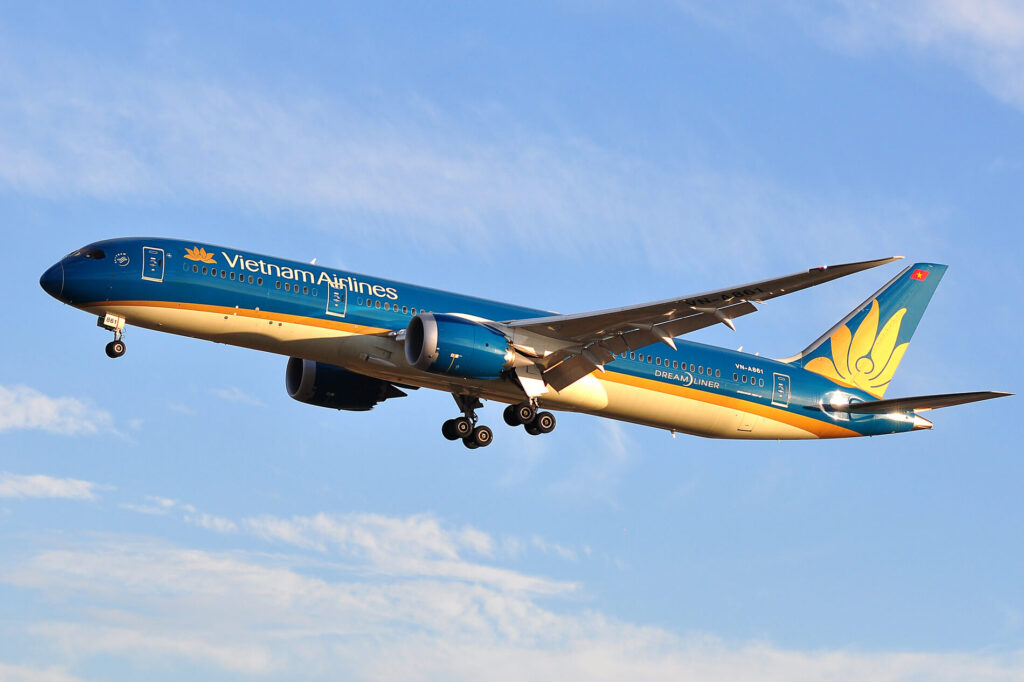On September 18, 2020, the National Institute of Hygiene and Epidemiology (NIHE) in Vietnam released a research article, revealing how a single passenger infected 15 others during a Vietnam Airlines flight and challenging the health security of long-haul travel.
On March 1, 2020, a 27-year-old Vietnamese businesswoman boarded a non-stop Vietnam Airlines flight VN54 from London, the UK, to Hanoi, Vietnam. After being screened by thermal imaging in London Heathrow Airport, the woman did not mention the sore throat and a cough that she was experiencing, after spending a week in Europe with her sister. She landed in Hanoi on March 2, 2020, and sought help at a local hospital three days later, on March 5, where she was diagnosed with COVID-19.
To prevent potential disease clusters, NIHE followed up all 16 flight crew members and 168 passengers who remained in Vietnam after the VN54 flight. They were quarantined, interviewed and examined, revealing 15 new COVID-19 cases by mid-March 2020. 12 (80% of the cases) of the passengers who tested positive for the virus traveled business class together with the infected woman, while 11 of them (92% of all in two-seat proximity) sat no more than two seats away.
Likewise, three of the woman’s household personnel received positive COVID-19 results on March 7, as well as her friend in London on March 10, whom she visited on February 29. Her sister was also diagnosed with the virus at a later date.
The NIHE affirmed that none of the cases had any substantial evidence to support alternative ways of virus transmission other than the Vietnam Airlines flight.
The research article notes that there was no mandatory onboard mask policy at the time of the flight. Investigators have also remarked lacking detailed data on passenger activity like movement and use of lavatories on board the flight. Regardless, the Institute has explicitly stated that the investigation has provided enough evidence to challenge the idea of in-flight virus transition as very low, in contrast to what authorities like the International Air Transport Association (IATA) claim.
The article concludes that wearing masks onboard aircraft should be obligatory, as should be hand hygiene and “cough etiquette.” While blocking middle seats may prevent infectious spread in theory, the investigators note that it seems to be inherently insufficient. Simultaneously, airlines should consider long-haul flights as potential threats for creating substantial sized clusters for COVID-19 cases and tighten their security measures in order to prevent them.

